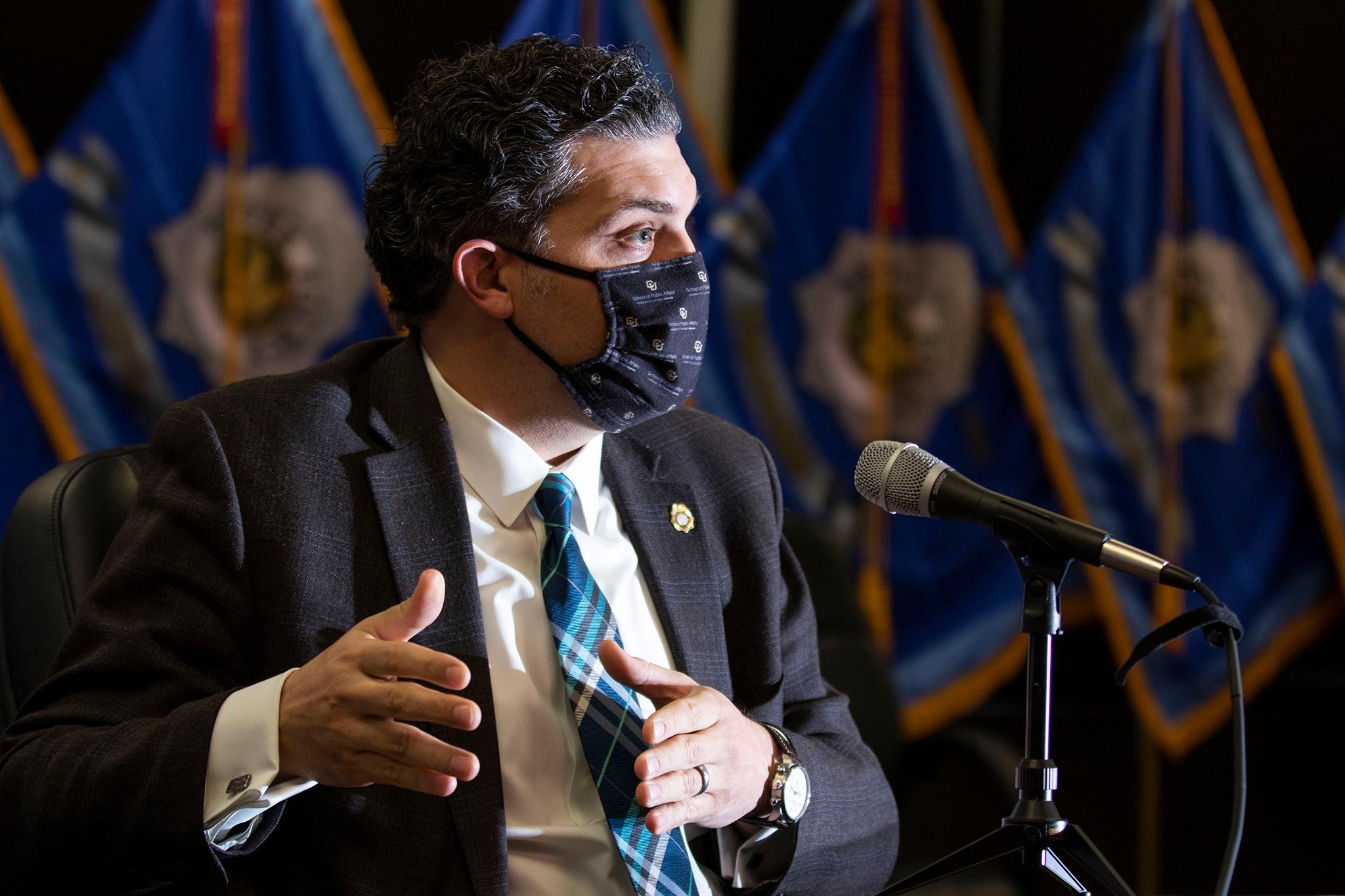The city's Support Team Assisted Response program, better known as STAR, continues to expand and maintain no arrests.
The program, which sends mental health professionals rather than police to certain emergency calls, now counts six clinicians (it will be up to eight by January), two full-time medics and two vans (more are on the way) that offer service every weekday, either from 6 a.m. to 6 p.m. or 8 a.m. to 8 p.m., as well as some service on weekends. As of Nov. 27, the program has responded to 2,018 calls that would have otherwise gone to police or other city agencies.
It's a big jump from the pilot program's first iteration, which launched in June 2020 with a lone clinician and one paramedic traveling around the city in a white van. The requests for STAR still far outweigh the program's reach, however.
During the presentation, STAR Operations Manager Carleigh Sailon said data indicated around 15,000 emergency calls have been STAR-appropriate during the program's tenure, but only around 13% were diverted to the team.
We are "not making it to all the calls that we need to quite yet. But as we bring on additional staff... we'll be able to meet that need even more," Sailon said.
She said the goal is to have six vans with nine teams providing coverage seven days a week, from 6 a.m. to 10 p.m.
A 15-person advisory committee, which was also created as part of the most recent expansion, broke down nearly every aspect of the program during the meeting Wednesday, requesting the demographics of those being aided by the program and data about whether the city's homeless encampment sweeps led to an uptick in calls.
At least two advisory members said they had helped people make calls to STAR but were told only officers were available.
"We don't want the community losing faith in STAR because they called and requested STAR and an officer showed up," Sailon said. "I recognize that this is something we have to problem-solve around."
Unlike hiring in other city sectors, the STAR program is finding candidates quickly and efficiently.
"I don't want to gloat, because I know we're in a huge hiring issue across every dynamic of the city," Chris Richardson, a project manager with the Mental Health Center of Denver, said. "But I think we're pretty excited about that."
Richardson said current staff included at least two Spanish-speakers, a French-speaker and someone with Tagalog ability.
"We've tried to be as intentional and deliberate as we can to make sure that all demographic populations are covered," Leigh Foster, a supervisor at the STAR program, said. "And I think we've done a pretty nice job of achieving that."
Committee members talked about the expansion not just in terms of staff, but geographically as well. Until now, most of STAR's interventions have occurred in the downtown area. With a larger team, members said they hoped for better outreach in Montbello, along Federal Boulevard and towards East Colfax.
Other improvements in the works included surveys for people using STAR services to give feedback and third-party evaluators to see whether the services provided are linguistically and culturally appropriate.













